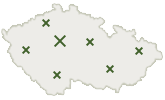EMCDDA news
Increase access to HCV testing and care in drugs services — a toolkit
EMCDDA launches new resources to help European countries beat viral hepatitis
On World Hepatitis Day, the EU drugs agency (EMCDDA) is launching a new set of resources to help European countries meet health targets to eliminate viral hepatitis. The resources, presented in an online toolkit, are part of a wider EMCDDA harm-reduction initiative supporting countries in their efforts to prevent and control infectious diseases among people who inject drugs (PWID).
27.07.2021
28 July: World Hepatitis Day
Read more
EMCDDA guide to holding a stakeholder round-table on supporting hepatitis C testing and care in drug services
Manual: increasing access to hepatitis C testing and care for people who inject drugs
France: Parliamentary Committee reports on cannabis regulation
In May 2021, a multidisciplinary committee established by the French Parliament published three reports on cannabis regulation. The reports, totalling 450 pages, address the regulation and impact of three types of cannabis use, namely: medicinal, recreational and use in the context of ‘wellness’ (focusing on cannabidiol (CBD) use).
21.07.2021
Read more
In memoriam — Tomas Zabransky
It was with great sadness that the EMCDDA learned this week of the passing of its long-term friend and colleague Tomas Zabransky MD, PhD. Dr Zabransky was a highly-esteemed Czech epidemiologist, who played a key role in developing the country’s drug policy. He was specialised in the epidemiology of blood-borne diseases and mortality among people who use drugs and in the economic evaluation of drug programmes and policies.
In recent years, Tomas served on the EMCDDA Management Board, representing the European Parliament.
08.07.2021
Read more
Final EMCDDA annual accounts for the financial year 2020
EMCDDA Best practice portal update (3/2021)
Contingency Management – evidence continues to build-up, time to start talking about implementation?
According to the just published EMCDDA European Drug Report cocaine is the second most commonly used illicit drug in Europe and the number of people entering treatment for the first time has risen over the last 5 years.
Treatments for cocaine use disorders are limited and no pharmacotherapy has been approved in Europe. Current treatment options rely mainly on psychosocial interventions.
15.04.2021
Read more



